- Home
- John Ellsworth
The Law Partners (Michael Gresham Legal Thriller Series Book 3) Page 13
The Law Partners (Michael Gresham Legal Thriller Series Book 3) Read online
Page 13
"No, you go first," he said. He was lying on his back, his pants down to his ankles, staring up at my bare breasts. He belonged to me just then. I could do with him as I wanted.
"The worst thing I ever did with a man? The night I took on the Chicago Bulls starting five."
"You screwed five NBA brothers at once?"
"I did. And even walked away from it the next day. But trooper, I was so sore! Now you. What's your worst?"
His face puzzled up. Cops aren't known for fun times, necessarily, so I knew it would be downbeat, serious. I was waiting.
"Planted evidence. That's right. I planted evidence on a guy."
"Oh, you rascal! What did you plant, coke?"
"Naw, nothing so mundane. I planted a gun on a lawyer."
"I never heard of that before," I said. "He must have really pissed you off."
"Hey! You're not recording this, are you?"
I pushed my breasts into his face. "Do I look like I'm recording?"
"No," he gushed, "no, you're not recording. Sorry I asked."
Just then my cell phone chimed. I had set its alarm while I was in the bathroom before we got down to it. I climbed up, walked over to the dresser, and placed the cell phone to my ear as if I were taking a call.
"Hello? What, you got back a day early? Of course I'll wait up, honey. Hurry now!"
I tossed the phone on the dresser and turned to my victim. He was drunk but not stupid. The pants were already up around the waist and the belt was being tugged into the third hole.
"Husband?"
"Sure is. He's an Army Ranger. Supposed to be deployed this week, last three-day leave."
"Oh, my God. An Army Ranger? Why the fuck didn't you tell me that?"
"Because your name is Jamie and you're a darling man. I wanted you."
"OMG," he mumbled.
Then he ran out into the night without so much as a goodbye kiss, much less a hug or a handshake.
Gone, kaput, fled, flew off.
So I went into my office and played it back.
My CCTV is a twenty-thousand-dollar movie system that can focus down on a gnat's hairy ass.
Which it did. In less than one hour I had edited the full one-hour version of Weldon's visit to my home to less than five minutes. I had even bypassed the bare breasts.
What I was left with was golden. Just for safekeeping I stored the video file on the cloud.
Sweet dreams, I told myself after I had checked the locks on all exterior doors.
Sweet dreams.
Married? Of course not. How could a woman like me be expected to manage a husband and a bedroom of witnesses who came and went at all hours of the night.
Besides, I didn't want to pay alimony ever again.
Been there, done that.
27
Marcel decided it would be a good idea to take Michael and his staff--and me--out on Michael's boat. The whole idea was to get out, get some fresh air, and take a look at the case against Michael and the case against Mira. I had filed a motion to dismiss in Michael's case, alleging a police conspiracy as the basis. We were going to look at evidence we could pull together to support this claim.
So we met up at Michael's boat club on Saturday morning, prepared and supplied for a day on Lake Michigan. Those coming aboard were Marcel, Michael, Danny, me, my paralegal Angelina, and two of Michael's friends that I wasn't acquainted with. It turned out that one of them was Michael's new neurologist who had been working with Michael to open new pathways around the injured part of his brain. The other was a woman from the Chicago Tribune who did investigative reporting. We were going to include her in our case review, I learned from Michael, because she was doing a behind-the-scenes workup on the police conspiracy angle.
The crew consisted of a rent-a-captain who was brought in to free up Michael to meet with the rest of us and because even Michael wasn't comfortable with his ability to captain his boat--yet. Plus, we had a galley-slave. A cook. What could be better than having a dedicated cook? We were set.
An hour north of Chicago, we all gathered in the salon for our show-and-tell. Marcel went first, playing the key footage of Mira's condo video. He had edited down seven cameras' hours and hours of video to a fifteen-minute presentation. This would be the video we would use in the Mira case. But it also could be much more than that. It could also possibly impact the case against Michael.
I say that because the video focused down on one police officer. Here's his setup. As near as we could calculate, the actual shooting occurred at 10:59 p.m. on the night of the Democratic fundraiser. We were able to pinpoint Mira's arrival home at 10:49 p.m. thanks to three different CCTV cameras. When we saw Marcel's exhibit of who came and went at what time, the whole truth of that night suddenly exploded on all of us, as Marcel knew it would.
Because--check me out on this--at ten o'clock almost on the button a stout youngish man arrived in the building, wearing civvies and a hat and toting a shoulder bag and he proceeded upstairs and exited the elevator on Mira's floor and disappeared down her hallway. We didn't actually have footage of him entering Mira's condo because the HOA didn't allow the taking of video of guests coming and going from tenants' private residences. Video of who was coming and going in the elevator vestibule was considered sufficient--it being a choice the HOA made based on input and a vote from all tenants. Fair enough, I got that.
We study the guy in the hat who is carrying the shoulder bag. Bottom line: it looks like Stormont. Is it for sure? Anybody’s guess.
We’ve learned that Stormont worked out of downtown on the four-to-midnight rollout. Stormont the unarmed-kid-killer. Marcel quickly associated him with the Ballantine Street shooting of Johnny Washington. His fame had preceded him and, to say the least, we were shocked that he was even on the premises. Why? Because he was suspended at that time, with pay, but suspended nonetheless.
Marcel had spread some money around and obtained departmental records on Stormont. His rank was patrolman. It turned out he was still suspended the night of the shooting. It was a short leap to connect Stormont with Darrell Harrow, who had been prosecuting him for the murder of Johnny Washington.
We reviewed the video several times. The figure we’re guessing is Stormont arrived before the shooting and departed after the other police and CSI and detectives had arrived on the scene. He arrived wearing civvies and left wearing his police uniform—that would be our contention. How was that for strange? we all wondered. During the interim, Michael Gresham came and went, leaving after Stormont had already left; Marcel came and went; Mira came and went. We had no actual video of Stormont at the scene because of the restriction against hallway video cameras, but we could guess.
Was Officer Stormont inside of Mira's condo at the time of the shooting? We couldn't prove this either way. However, what we could do with this information is we could suggest/infer that he had been inside and that he was involved in the shooting maybe even as the shooter himself. Who had a better motive to shoot the Deputy DA who was prosecuting him than Tory Stormont? When you give a defense lawyer the opportunity to push the blame off on someone other than his client you've just handed him a huge weapon. Even better, in this case the weapon was double-sided. On the one hand, it raised the definite possibility of a shooter other than Mira. But--more importantly for the case I was defending against Michael himself--it gave rise to an inference that if the police would engage in criminal conduct such as a shooting, maybe they would also engage in planting the murder weapon in the trunk of Michael's car.
So now we were getting somewhere and I was loving our retreat on the lake.
The video rolled for the tenth time. This time, partway through, Marcel hit pause and enlarged a still portrait of the guy wearing the hat. His face was partially visible at the exact frame where Marcel paused. This time Michael sat bolt upright on the salon's leather sofa.
"Oh my God!" he exclaimed. "That face. Now I recognize that face!"
This was a moment of breakthrough. Michael�
��s memory banks had been cleaned out by the multiple concussions. Now the memory of at least one pre-beating event was returning. For one, I was very excited.
We all looked at him, anticipating what might come next. We weren't disappointed.
"He was at the condo. He assisted with the search of Mira's bedroom and took over for the original cop who had been stationed at the door!"
"You're sure of this?" I asked. We were on very dangerous ground here, ground that the police witnesses would violently oppose.
"Sure of it? Wait one."
Michael pulled out his smart phone and began swiping pictures across the screen. Then his face brightened with excitement.
"Look," he said in the voice of the astonished, "here he is!"
We all passed around Michael's phone. Sure enough, the face of Officer Stormont was clearly framed there, standing inside Mira’s bedroom. He was leaning forward slightly, his face caught in the frame as one who has been surprised by the sound of a camera lens clicking like smartphones replicate. I flipped through the several pictures before and after it when it came my turn to examine Michael's shot. There were three other, less clear, shots that included parts of the same officer.
"I took these pictures to memorialize the scene before and after the cops arrived," Michael told us. “It’s becoming clearer to me and clearer. Anyone who knows me knows how little credibility I give your usual cops' claim on cross-examination when they're claiming their glossy crime scene photos accurately portray the scene as they found it. More often than not, I've found they don't do any such thing, that the first responders all too often traipse through the scene, moving or kicking this or that aside, lifting objects to look at them more closely, and all the rest of the dumb-shit stuff that goes on."
"You've certainly recorded that fact with your camera in Mira's case," I said. "This is definitely the same guy Marcel showed us from the CCTV video. But this tells us who that guy actually is. We’ve seen his face plastered all over the newspapers."
Michael nodded vigorously, his face lit up and smiling. It was a breakthrough moment for him, the most invested in a meeting that I had seen him since his release from the hospital.
Michael, I could see, was coming back to life.
"Marcel," I said, "I'm wondering. Can we re-play Stormont as he's leaving the condo?"
"Sure," said Marcel. "Here we are, let's watch."
We all turned our attention back to the flat screen TV mounted on the bulkhead amidships.
The time on the video feed when Stormont rounded the corner from the hallway and came into view at the elevator vestibule was 1:14 a.m. Following after him a little later on their way out were Mira, Marcel, and, later, Michael. No other person came or went in between the three civilians and the cop.
"Let's watch it again," I told Marcel after the initial screening.
Marcel obliged, playing it at full-speed three times: the officer rounding the corner, looking neither right nor left but proceeding directly to the buttons at the side of the doors and pressing the down arrow repeatedly as if impatient and as if repeated pressings of the buttons would actually help.
"Half-speed this time, Marcel," I requested. "Please."
This time, just as the figure came around the corner leading to the hallway, I yelped, "Stop! Right there!" and Marcel stopped the figure's movement in mid-step.
We leaned to the screen and all of us examined it. We weren't sure what we were looking for, but it became apparent that the officer's right rear trouser pocket was perceptibly bulged out. He was carrying something inside that pocket.
"Is that the gun?" I asked Marcel.
He replayed it again then stepped through the video frame-by-frame.
In the end, we couldn't be sure. The bulging pocket was inconclusive.
Then Michael had a different idea.
"Let's look at his backside as he exits the elevator downstairs," he asked Marcel.
Marcel stepped the video forward and presto, there was the same cop leaving the elevator downstairs in the parking garage.
And guess what? His right rear pocket, when Marcel focused down on it, clearly showed the print-through of a revolver. A pistol. We could all agree we could make out the grip, the cylinder, and the length of the barrel. I also knew--as did Michael--that by sending the gun images to the right technician, we could obtain the exact length and probably even the style of the gun. At least we would have the length to compare to the actual length of the gun ostensibly discovered in the trunk of Michael's Mercedes.
Michael rubbed his hands together gleefully.
"So there you are, friends and family. There's the non-smoking smoking gun. Officer Tory Stormont of the Chicago Police Department is seen leaving the crime scene where a homicide by firearm has just occurred, secreting a firearm in the pocket of his uniform. I rest my case."
We were excited. A round-robin of exclamations and thanks directed toward Marcel and his video skills erupted. We were elated.
Then the galley chef called us to lunch. Out on the fantail we enjoyed rock lobster, grilled of course, brown rice, grilled asparagus tips in butter, and iced tea. He followed up with lemon meringue pie and we all fell silent as the plates were cleared away.
Then Michael spoke up.
"I'm ready to come back to work," he proclaimed. "Not just ready to return, either. I'm actually anxious to return. My heart goes out to Bill Grady sitting over there, my incredible neurologist. And to Danny Gresham, my ever steady-in-the-boat spouse. To Marcel Rainford, my trusted investigator, confidante, and sidekick. And to Harley Sturgis, the lawyer without whom I would still probably be locked up out on California Avenue waiting for my turn in front of a jury. Thank you one and all."
We all returned Michael's thanks and comments and the boat grew strangely quiet. Coffee was served as we headed back south along the shoreline.
It was a good outing, at least. It was an incredible outing, at best.
We were ready to present my motion to dismiss.
And we were ready to kick some police ass.
28
Michael's judge was Peter J. Wang. He walked into court the day of Michael's arraignment carrying an arm-numbing stack of law books and a tall Styrofoam cup. Wang was almost six feet tall, had the thick arms and broad shoulders of a wrestler, and smiled a nice white smile that had the chameleon-like ability to turn into a scowl suddenly and without warning. His emotions were at all times apparent and he didn't care, as he had frowned and smiled and grimaced and eye-rolled his way through a half-dozen of my trials and dozens of my motion hearings before him. So it was no surprise that he frowned and clicked his teeth when he opened Michael's court file and read the motion to dismiss I had filed.
It didn't sit well with him. Beside me, Michael nudged me with his knee and I caught his profile out of the corner of my eye. He looked terrified, like perhaps my judgment had been off and the motion to dismiss shouldn't have been filed. I wanted to reach over and squeeze his arm but could not under the circumstances.
Michael had been home from the hospital less than two weeks and still wasn't a hundred percent. Danny and I had spoken maybe five times since his discharge and it was always worrisome how withdrawn and temperamental he had become after the beating. On the boat he had said he was ready to come back but he was also having serious down times. I had included in the motion an affidavit signed by Danny setting out the extreme personality changes she had witnessed. The Michael whom she had married was no longer available to her; he couldn't be reached no matter how calm and safe she made things for him around the house. He was constantly creeping to the curtains and blinds and peering outside, most often rewarded only with glimpses of the security force Danny had put in place around their home and office. He was suspicious even of these people and would take care not to let them see him in return.
Then there was the crying. Periods of depression followed by bouts of tears and laughter intermingled and impossible for Danny to minister to. She was a lawyer, n
ot a psychologist, and she found that living with the new Michael was grueling if not downright miserable. So they agreed to take it a day at a time; sometimes even an hour at a time. Her affidavit ended with the facts in support of her observation that he had earlier lost all desire to practice law, and that, by extension, the police had accomplished what they set out to accomplish, to-wit: the separation of the attorney Michael Gresham from the client Miranda Morales.
My motion to dismiss the charges against Michael then went into a ten-page presentation of the law--hence the judge's stack of law books. The books indicated to me that he had done his homework and had brought along his own points and authorities for what action he had decided to take.
Judge Wang called court to order and then addressed the litigants.
"Counsel, the State has filed an objection to Mr. Gresham's representation of Miranda Morales in this criminal case, based on an alleged conflict of interest between Miranda Morales' case--a co-defendant--and his own case. The sum and substance of the State's objection appears to be that because Gresham and Morales have each of them been charged, alternatively, with firing the gun that ended the life of Darrell Harrow, and of hiding that same gun from the City of Chicago police who responded to the crime scene, there is a conflict of interest. Ms. Sturgis, as counsel for the defendant and the party who filed the motion, do you have any witnesses for the court?"
"I do, Your Honor," I said. "I would call Marcel Rainford to the witness stand."
Marcel came forward, his long black hair combed straight back and tucked nicely behind, as he had humored me and obtained the style of haircut I knew would play best with the court. Moreover, Marcel was wearing a conservative Brooks Brothers suit with a white shirt and club tie. He looked like a member of the bar or a physician, which would impress the judge. Settling into the witness chair, Marcel smoothed his tie and then looked up at me.
"State your name," I requested.
"Marcel Rainford."

 Girl, Under Oath (Michael Gresham Series)
Girl, Under Oath (Michael Gresham Series)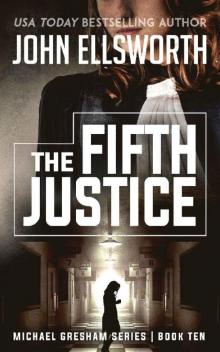 The Fifth Justice (Michael Gresham Legal Thrillers Book 10)
The Fifth Justice (Michael Gresham Legal Thrillers Book 10)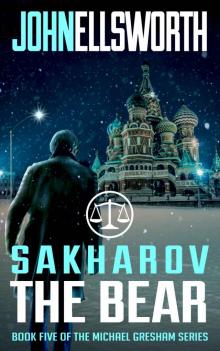 Michael Gresham (Book 5): Sakharov the Bear
Michael Gresham (Book 5): Sakharov the Bear Voices In The Walls: A Psychological Thriller (Michael Gresham Series)
Voices In The Walls: A Psychological Thriller (Michael Gresham Series)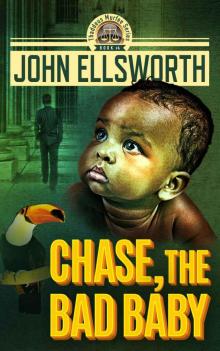 Chase, the Bad Baby: A Legal and Medical Thriller (Thaddeus Murfee Legal Thriller Series Book 4)
Chase, the Bad Baby: A Legal and Medical Thriller (Thaddeus Murfee Legal Thriller Series Book 4)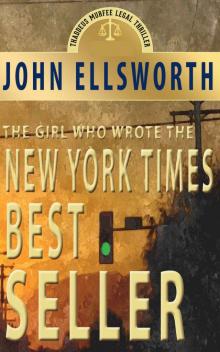 The Girl Who Wrote The New York Times Bestseller: A Novel (Thaddeus Murfee Legal Thrillers Book 8)
The Girl Who Wrote The New York Times Bestseller: A Novel (Thaddeus Murfee Legal Thrillers Book 8)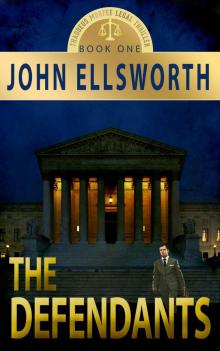 The Defendants: Crime Fiction & Legal Thriller (Thaddeus Murfee Legal Thriller Series Book 1)
The Defendants: Crime Fiction & Legal Thriller (Thaddeus Murfee Legal Thriller Series Book 1) Hellfire (Sisters In Law Book 2)
Hellfire (Sisters In Law Book 2)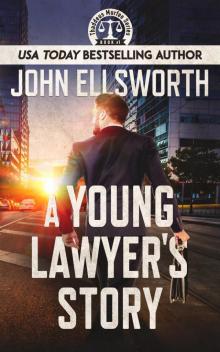 A Young Lawyer's story
A Young Lawyer's story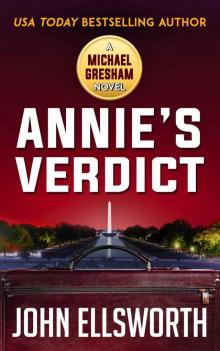 Annie's Verdict (Michael Gresham Legal Thrillers Book 6)
Annie's Verdict (Michael Gresham Legal Thrillers Book 6)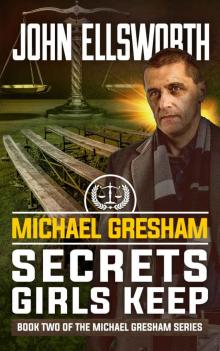 Legal Thriller: Michael Gresham: Secrets Girls Keep: A Courtroom Drama (Michael Gresham Legal Thriller Series Book 2)
Legal Thriller: Michael Gresham: Secrets Girls Keep: A Courtroom Drama (Michael Gresham Legal Thriller Series Book 2)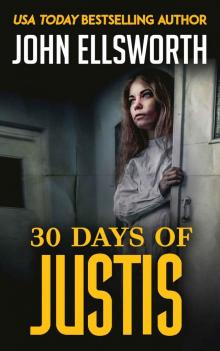 30 Days of Justis
30 Days of Justis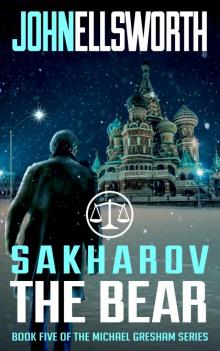 Sakharov the Bear (Michael Gresham Legal Thrillers Book 5)
Sakharov the Bear (Michael Gresham Legal Thrillers Book 5)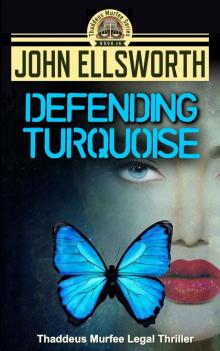 Defending Turquoise (Thaddeus Murfee Legal Thriller Series Book 5)
Defending Turquoise (Thaddeus Murfee Legal Thriller Series Book 5)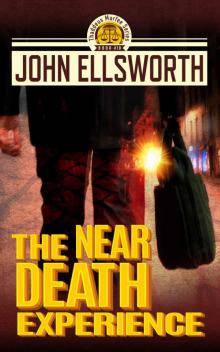 The Near Death Experience (Thaddeus Murfee Legal Thriller Series Book 10)
The Near Death Experience (Thaddeus Murfee Legal Thriller Series Book 10)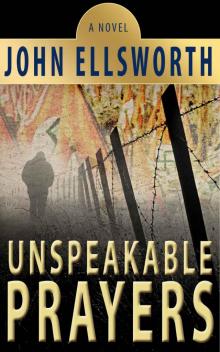 Unspeakable Prayers: WW II to Present Day (Thaddeus Murfee Series of Legal Thrillers)
Unspeakable Prayers: WW II to Present Day (Thaddeus Murfee Series of Legal Thrillers)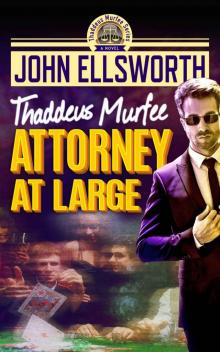 Attorney at Large (Thaddeus Murfee Legal Thriller Series Book 3)
Attorney at Large (Thaddeus Murfee Legal Thriller Series Book 3)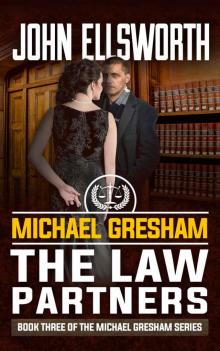 The Law Partners (Michael Gresham Legal Thriller Series Book 3)
The Law Partners (Michael Gresham Legal Thriller Series Book 3)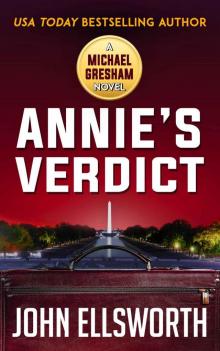 Annie's Verdict
Annie's Verdict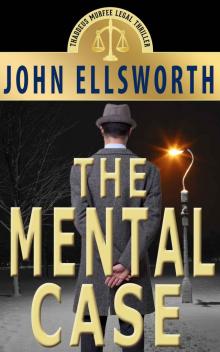 The Mental Case (Thaddeus Murfee Legal Thriller Series Book 6)
The Mental Case (Thaddeus Murfee Legal Thriller Series Book 6)